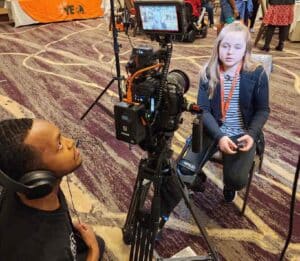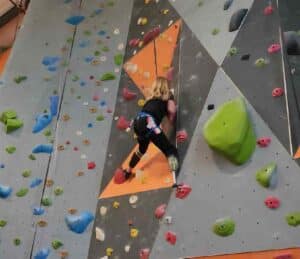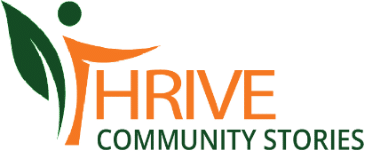Advocacy is a driving force in redefining society
By Divine Favour Akin, Youth Engagement Reporter
 According to Bolder Advocacy, “Advocacy is any action that speaks in favor of, recommends, argues for a cause, supports or defends, or pleads on behalf of others.” In simple terms, it means speaking up and speaking out. Yet, a simple definition cannot communicate the full extent of all that advocacy encompasses or how much of an impact it can have in redefining society for the better. The very backbone and driving force for the disabled community has been rooted in advocacy. For example, the Capitol Crawl in March 1990 pushed the passing of the Americans With Disabilities Act.
According to Bolder Advocacy, “Advocacy is any action that speaks in favor of, recommends, argues for a cause, supports or defends, or pleads on behalf of others.” In simple terms, it means speaking up and speaking out. Yet, a simple definition cannot communicate the full extent of all that advocacy encompasses or how much of an impact it can have in redefining society for the better. The very backbone and driving force for the disabled community has been rooted in advocacy. For example, the Capitol Crawl in March 1990 pushed the passing of the Americans With Disabilities Act.
Before the ADA, public transport required abandoning medical equipment, and disabled people were refused services such as grocery shopping and eating at restaurants; if they did manage to get jobs, they were automatically paid less for the same work. Congress sat on the bill for months, and in desperation protesters went to the Capitol to urge Congress to pass the bill. Many of them abandoned their aid devices–crutches, wheelchairs, powerchairs and other mobility-assistance devices–and crawled up the 83 stone stairs of the Capitol to symbolize to the whole world the barriers they faced in day-to-day living and the fact that it needed to change immediately. Within a few months after the protest, the bill was finally passed.
The ADA altered the landscape of the entire country so that the buildings, schools and public spaces became accessible and discrimination based on disability became illegal. It promoted more independence for people with disabilities. This act of advocacy made the progress we see possible. We can attend school, get jobs, use public transport and accomplish much more because of decades of advocacy. And yet, as far as we have come, we are not done. Now, as the next generation, we take on the role of advocates for ourselves and our community. But then, what does it mean to truly be an advocate?
To better understand advocacy, I interviewed Callaway Lewis, an 11-year-old activist from New Mexico, and her mom, who, in conjunction with other advocates, helped pass the So New Mexicans Can Move Act. Callaway had her leg amputated below the knee due to a rock climbing accident, but that did not stop her.
 As an active child, Callaway would never sit still, even if it meant hopping from one activity to the next or going rock climbing. Nevertheless, there was an increasing conflict in affording medical sports equipment such as a running leg. To state insurance, having a running leg or adaptive sports equipment was unnecessary. It was a want; in other words, wanting to be fit and have a healthy lifestyle was a luxury you had to pay out of pocket for.
As an active child, Callaway would never sit still, even if it meant hopping from one activity to the next or going rock climbing. Nevertheless, there was an increasing conflict in affording medical sports equipment such as a running leg. To state insurance, having a running leg or adaptive sports equipment was unnecessary. It was a want; in other words, wanting to be fit and have a healthy lifestyle was a luxury you had to pay out of pocket for.
This created a harsh reality for Callaway and the thousands of people living with limb differences. It meant they would have to pay from $2,000 to $15,000 to afford a running leg and stay active like everyone else. That was not fair. Callaway said, “The ability to run, jump and climb is a right.” Aside from making it difficult to afford legs for physical activity, it also increased the long-term medical bills caused by an inactive or limited lifestyle and injuries caused by cheap, nonfunctional prostheses. The bill, (HB131) aka “So New Mexicans Can Move,” would alter that reality for New Mexicans, and it did so by making it easier for them to access better health care and medical sports equipment, irrespective of age.
A huge part of getting the bill passed was attending legislative sessions and showing lawmakers why this bill needed to be passed. Callaway did this by sharing her story. Experience is a valued entity that allows others to see things from our perspective, and that’s exactly what Callaway did. She understood that lawmakers were more inclined to listen to young people, so she would urge the legislators by helping them understand the impact the bill would have on people like her. She says, “You become an expert for others because of your experience. You know things, and you want to share things.”

